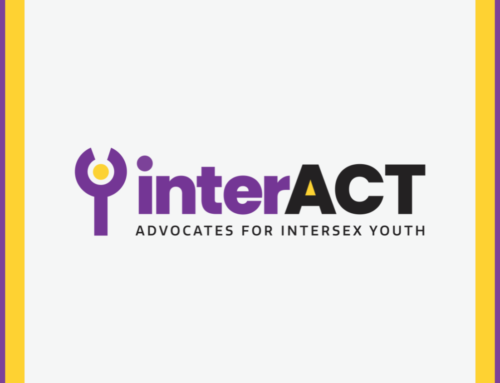Reflecting upon what prompted her to author Making Sense of Intersex: Changing Ethical Perspectives in Biomedicine, American University philosophy professor Ellen Feder explains that she did not initially set out to write a book. However, after 15 years of study, field research and collaboration with the parents of intersex children, intersex youth, and adults, Feder felt both a commitment and need to do so. Further, Feder believed that by using the tools of philosophy she could conceive of a new framework to examine ‘the problem of intersex’ or more specifically how it is understood as ‘a thing to be fixed’ within biomedical institutions. Her book aims to elucidate a new understanding of the ethical violations that have and continue to persist as a consequence of identifying intersex as ‘fixable’. Making Sense of Intersex also refigures the “problem” of intersex to show that there are many possible sites of intervention beyond the reshaping of children’s bodies. The book explores ways to help parents adjust to changing expectations and to fully embrace new conceptions of ethical parenting.
Feder is a parent herself and a seasoned contributor to discussions on the ethical concerns of the treatment of infants, children and adults with atypical sex development. Some readers may be familiar with her writings with Alice Dreger and AIC’s Anne Tamar-Mattis on the off-label use of dexamethasone to treat female fetuses at risk of having congenital adrenal hyperplasia (CAH) starting in 2009. Prior to that, Feder published a chapter called, “’In their best Interests’: Parents’ experience of atypical genitalia,” in the groundbreaking 2006 anthology, Surgically Shaping Children: Technology, Ethics and the Pursuit of Normality.
Feder began interviewing parents of intersex children in 2000, most of whom had followed the counsel of pediatric specialists to intervene with surgery and wondered if they had made the best choices for their children. When in August 2006, the Journal of the American Academy of Pediatrics published the “Consensus Statement on Management of Intersex Disorders,” which urged greater caution in the performance of normalizing surgeries, Feder and others believed that the standard of care would change and fewer surgeries would be performed. From talking with physicians and parents however, Feder learned that what was actually happening was that parents were no longer being told they had to elect normalizing surgery, but that it remained the recommended course of treatment. Such procedures were (and continue to be) portrayed to parents as the evidence-based medical standard. Though parents were extended the nominal autonomy to choose or refuse treatments the majority of parents feared they were being neglectful if they refused the detailed treatment plans of medical experts— what Feder refers to as a kind of counseling that is essentially “directive in effect if not in form.”
As she spoke with more families and documented the sustained prevalence of normalizing procedures and parents’ growing confusion and concern, Feder continued to question: what is really at stake in normalizing children’s bodies before they are old enough to consent? Then, in 2010, during the height of the dexamethasone controversy, parents who refused normalizing surgery for their child with CAH approached Feder. Like other parents with whom Feder had spoken, they questioned if they had made the best choices for their child. Their story, when interwoven with her prior strands of research, catalyzed the book’s conclusion: that parents and society as a whole have an ethical responsibility to protect and uphold what we can understand as the “dignity of children’s vulnerability.”
This new understanding of our shared humanity is crucial for intersex issues. Much of what underpins the current biomedical management of intersex are the assumptions that intersex babies must be protected from the vulnerability of their differences and the threat of stigma that may result from them. Parents must likewise be protected from the duress caused by their children’s difference or potential stigmatization. Unfortunately, as many intersex people themselves have attested, current treatment protocols continue to promote stigma and trauma rather than allay it. Making Sense of Intersex offers the perspective that since what makes us human is our shared embodied vulnerability, this collective vulnerability deserves protection and to be recognized as a source of human dignity. It is, in essence definitive of one’s humanity— whatever shape it may take.
Learn more about Ellen Feder and purchase her groundbreaking and compassionate book to be released on April 24th from Indiana University Press here.
Ellen Feder has generously offered to donate an autographed copy of her book to the first ten (10) people who donate $100 or more to AIC . To receive your copy indicate “Making Sense of Intersex” in the dedication field of the online donation form or in the memo of a check. Checks can be mailed to AIC at PO Box 676, Cotati, CA 94931.






